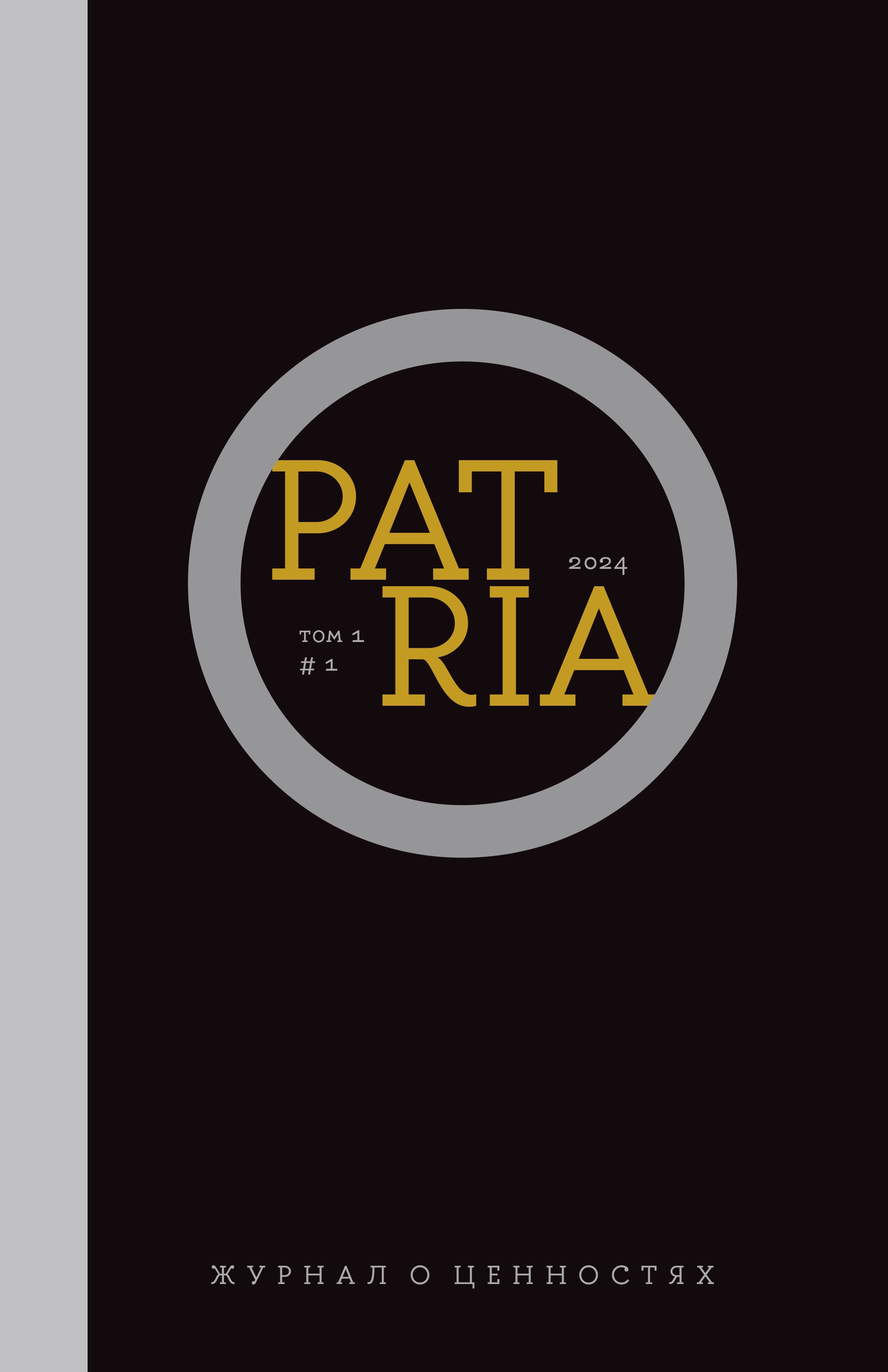Problems of Values in Memory and Reenactment Studies
Abstract
The article provides a comparative analysis of the “memorial boom” and historical reenactment value systems. It is proved that cartography of differences in the practices of commemoration is possible only at the intersection of the study of value orientations and the imposition of memory frames. The very concept of reenactment is extremely indicative for characterizing contemporary attitude towards the past: it marks a significant departure from the constructivist paradigm of memory studies, which is being replaced by a partial return to Rankean realism and at the same time (in the spirit of “post-truth”) a paradoxical recognition of the impossibility of such a return. This contradiction, as well as the ambivalence of the relationship between expert knowledge of the past and popular culture, which does not recognize the status of experts, is softened in the movement of historical reenactment due to a set of conventional rules that can vary depending on the situation. A fundamental feature of historical reenactment is weak reflexivity, which contributes to the displacement of ethical pathos and value-rational judgments of the 1980s-1990s “memory boom” by emotional-affective and traditional actions out of habit.
Downloads
References
Agnew V., Lamb J., Tomann J. (eds.) (2019). The Routledge Handbook of Reenactment Studies: Key Terms in the Field. L.; N. Y.: Routledge.
Agnew V., Tomann J., Stach S. (eds.) (2023). Reenactment Case Studies: Global Perspectives on Experiential History, L.; N. Y.: Routledge, 2023.
Antweiler K. (2024). Memory as a Means of Governmentality. Memory Studies, vol. 17, no. 2, pp. 137–154.
Artamonov D. S. (2023). Mediapamjat’ v jepohu cifry [Media-memory in the digital era], Saratov: SGU im. N. G. Chernyshevskogo.
Ashworth G. D. (2017). Ot istorii k naslediju – ot nasledija k identichnosti: v poiskah ponjatij i mod [From History to Heritage – From Heritage to Identity: In Search of Concepts and Models]. Neprikosnovennyj zapas, no. 4, pp. 154–171.
Assmann A. (2014). Dlinnaja ten’ proshlogo: memorial’naja kul’tura i istoricheskaja politika [Long shadow of the past: memorial culture and historical politics], Moscow: Novoe literaturnoe obozrenie.
Assmann J. (2004). Kul’turnaja pamjat’: pis’mo, pamjat’ o proshlom i politicheskaja identichnost’ v kul’turah drevnosti [Cultural Memory: Writing, Remembrance, and Political Identity in Ancient Cultures], Moscow: Jazyki slavjanskoj kul’tury.
Berger S., Niven B. (2021). Introduction. Agonistic Memory and the Legacy of 20th Century Wars in Europe (ed. by S. Berger, W. Kansteiner), Palgrave Macmillan, pp. 1–16.
Berger S., Niven B. (eds) (2020). Cultural History of Memory in the Long Twentieth Century. Vol. 6. L., N.Y.: Bloomsbury Academic.
Bojm S. (2019). Budushhee nostal’gii [The Future of Nostalgia], Moscow: Novoe literaturnoe obozrenie.
Bozoğlu G. (2020). Museums, Emotion, and Memory Culture: The Politics of the Past in Turkey, Abingdon, N.Y.: Routledge.
Bull A. C., Hansen H. L. (2015). On Agonistic Memory. Memory Studies, vol. 9, no. 4, pp. 390–404.
Bourdieu P., Boltanski L, Kastel R., Shamboredon Zh.-K. (2014). Obshhedostupnoe iskusstvo: opyt o social’nom ispol’zovanii fotografii [Public Art: An Experience about the Social Use of Photography], Moscow: Praksis.
Drikker A. S. (2022). Tret`ya pamyat [The Third Memory]. Chelovek, no. 1, pp. 80–99.
Filippov A. F. (2023). Cennosti i mobilizacija: k dinamike steril’nogo vozbuzhdenija [Values and mobilization: towards the dynamics of sterile excitement]. Rossija v global’noj politike, no. 1, pp. 51–70.
Frihammar M., Silverman H. (eds.) (2019). Heritage of Death: Landscapes of Emotion, Memory and Practice, N. Y., L.: Routledge.
Halbwachs M. (2007). Social’nye ramki pamjati [Social frameworks of memory], Moscow: Novoe izdatel’stvo.
Inglhart R. (2020). Kul’turnaja jevoljucija. Kak izmenjajutsja chelovecheskie motivacii i kak jeto menjaet mir [Cultural evolution. How human motivations change and how it changes the world], Moscow, Cheljabinsk: Socium.
Kansteiner W. (2020). Media and Technology. A Cultural History of Memory in the Long Twentieth Century (ed. by S. Berger, B. Niven), vol. 6, L., N. Y.: Bloomsbury Academic, pp. 51–73.
Kljuev A. I., Sveshnikov A. V. (2019) Diskursivnaja identichnost’ sovremennogo istoricheskogo rekonstruktora (na materiale medieval’nyh klubov istoricheskoj rekonstrukcii) [Discourse identity of the modern historical re-enactor (on the material of medieval clubs of historical reconstruction)]. Dialog so vremenem, no. 66, pp. 120–136.
Kolesnik A. S., Rusanov A. V. (2022). «Nasledie-kak-process»: diskussii o koncepte kul’turnogo nasledija v sovremennyh social’nyh i gumanitarnyh naukah [Heritage-as-process: the concept of cultural heritage in contemporary social sciences and humanities]. Vestnik Permskogo universiteta. Istorija, no. 3. pp. 58–69.
Malksoo M. (eds) (2023). Handbook on the Politics of Memory, Camberley, Northampton: Eward Elgar Publishing.
Miller A. I., Efremenko D. V. (eds.) (2020). Politika pamjati v sovremennoj Rossii i stranah Vostochnoj Evropy: aktory, instituty, narrativy [The politics of memory in contemporary Russia and in countries of Eastern Europe: actors, institutions, narratives], Saint Petersburg: Izdatel’stvo Evropejskogo universiteta.
Minkov M., Sokolov B., Lomakin I. (2023). Jevoljucija modeli kul’turnyh izmerenij Hofstede: paralleli mezhdu obektivnoj i subektivnoj kul’turoj [Evolution of the Hofstede Model of Cultural Dimensions: Parallels Between Objective and Subjective Culture]. Sociologicheskoe obozrenie, no. 3, pp. 287–317.
Mochalova M. A. (2020). Kak govorit’ o nematerial’nom kul’turnom nasledii? [How can one speak of intangible cultural heritage?]. Sibirskie istoricheskie issledovanija, no. 2, pp. 298–304.
Pavlovskij A. F., Miller A. I. (eds.) (2023). Pamjat’ v seti: cifrovoj povorot v memory studies [Memory online: the digital turn in memory studies], Saint Petersburg: Evropejskij universitet.
Safronova Ju. A. (2018). Tret’ja volna memory studies: dvadcat’ tri goda protiv shersti [The third wave of memory studies: going against the grain for twenty-three years]. Politicheskaja nauka, no. 3, pp. 12–27.
Smith L., Campbell G. (2017). ‘Nostalgia for the Future’: Memory, Nostalgia and the Politics of Class. International Journal of Heritage Studies, vol. 23, no. 7, pp. 612–627.
Volkov V. V., Harhordin O. V. (2008). Teorija praktik [Theory of practices], Saint Petersburg: Izdatel’stvo Evropejskogo universiteta.
Winter J. M. (2023). Mesta pamjati, mesta skorbi: Pervaja mirovaja vojna v kul’turnoj istorii Evropy [Sites of Memory, Sites of Mourning: The Great War in European Cultural History], Saint Petesburg: Izdatel’stvo Evropejskogo universiteta v Sankt-Peterburge.
Copyright (c) 2024 HSE University

This work is licensed under a Creative Commons Attribution 4.0 International License.




